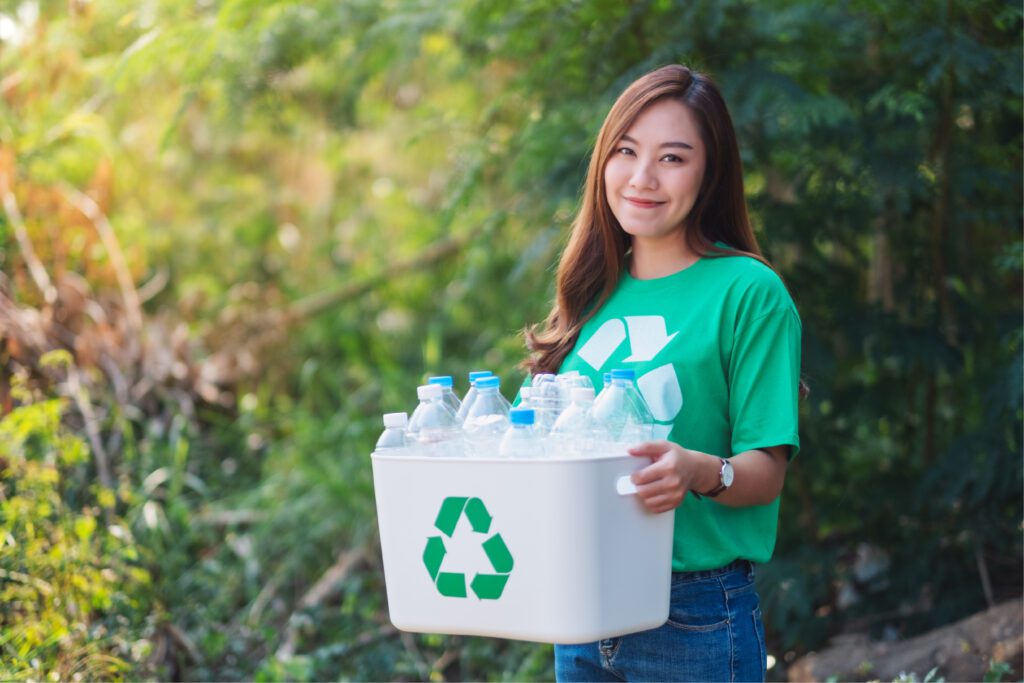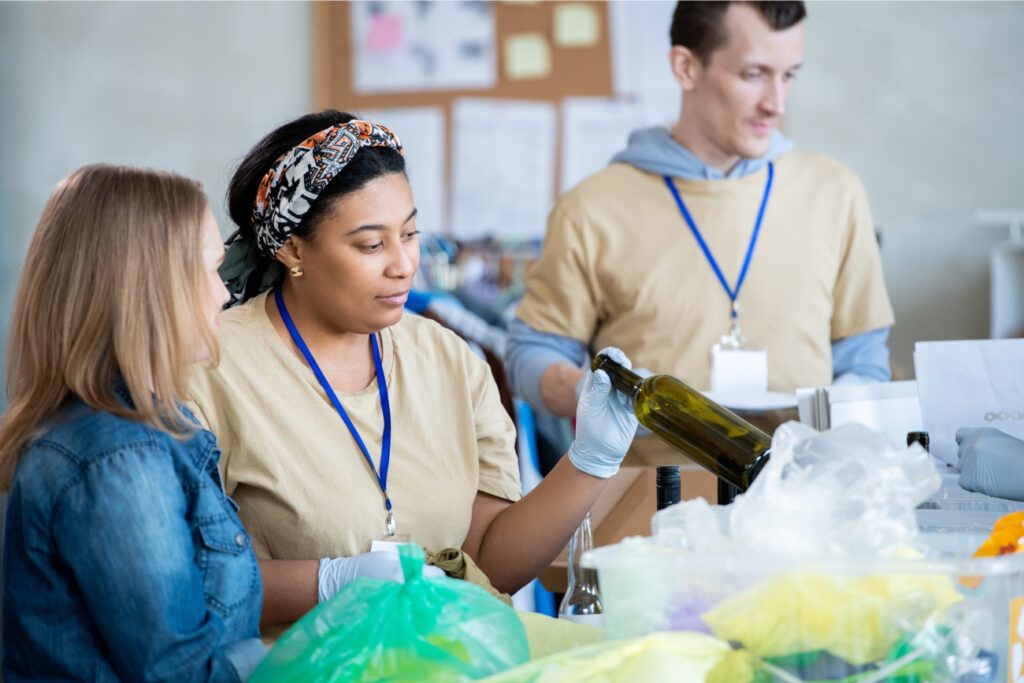In today’s fast-paced world, where convenience often trumps conservation, the importance of recycling cannot be overstated. Every plastic bottle, paper scrap, and metal can we recycle is a step towards a healthier planet. It’s about more than just reducing waste in our landfills; it’s about conserving resources, saving energy, and mitigating the impacts of climate change. At Jacs Bins, we’re not just passionate about waste management; we’re committed to fostering a culture of sustainability that starts at home.
Understanding the ins and outs of recycling can sometimes feel overwhelming. What materials are recyclable? How should items be prepared for recycling? And what common mistakes should be avoided? These are questions many households grapple with daily. This blog aims to demystify the recycling process, offering clear, actionable tips to make recycling a simpler, more effective part of your daily routine. From setting up a home recycling system to navigating the challenges of recycling different materials, we’ve got you covered.
Join us as we explore the essentials of household recycling, share innovative ideas for reducing waste, and highlight how Jacs Bins can support you every step of the way. Whether you’re a recycling rookie or looking to refine your green practices, this guide is your go-to resource for making a meaningful environmental impact right from your living room.

Understanding the Basics of Recycling
Why Recycle
The journey towards a sustainable future begins with understanding why recycling is pivotal. Each year, millions of tons of waste are dumped into landfills, taking up precious land and releasing harmful gases into the atmosphere. Recycling helps mitigate these issues by converting waste into new products, thus conserving natural resources, reducing greenhouse gas emissions, and saving energy. It’s a cycle that not only preserves the environment for future generations but also fosters a healthier planet today.
What Can Be Recycled
Navigating what materials can be recycled is crucial for effective household recycling. Generally, paper, cardboard, most plastics (look for the recycling symbols #1 through #7), metals like aluminum and steel cans, and glass bottles and jars can be recycled. However, it’s important to check with your local recycling program for specific guidelines, as these can vary.
A well-intentioned effort can sometimes lead to common mistakes, such as:
- Contamination: Placing non-recyclable items in the recycling bin can contaminate the entire batch, making it more difficult to process.
- Wishcycling: The act of tossing questionable items into the recycling bin, hoping they’re recyclable, often does more harm than good.
- Not Cleaning Recyclables: Residual food and liquid can spoil recyclable materials. A quick rinse can prevent this issue.
Setting Up a Home Recycling System
Creating an efficient home recycling system is easier than you might think. Here are some steps to get you started:
Choosing the Right Bins
Invest in separate bins for different types of recyclables — one for paper, another for plastics, and so on. This separation simplifies the recycling process and prevents contamination.
Labeling and Organization
Clearly label each bin with the type of material it’s meant for. This not only helps household members but also ensures that guests can easily participate in your recycling efforts.
Location Matters
Place recycling bins in accessible locations where waste is commonly generated, such as the kitchen, home office, or garage. Making recycling as convenient as possible encourages consistent participation.
Recycling Different Materials
Different materials require different approaches for recycling. Here’s a brief guide:
Paper and Cardboard
Most paper products are recyclable, including newspapers, magazines, and boxes. Flatten cardboard to save space in your recycling bin.
Plastics
Pay attention to the recycling symbols and numbers on plastic items. While most household plastics are recyclable, some items, like plastic bags and wrap, require special handling and may need to be taken to specific collection points.
Glass and Metals
Glass bottles and jars can be recycled endlessly without loss of quality. Metals, including aluminum cans and steel tins, are also highly recyclable. Ensure these items are empty and rinse them to remove any residue.
E-Waste
Electronic waste, such as old cell phones, computers, and TVs, should not be thrown in regular recycling bins. Look for local e-waste recycling programs or drop-off locations to dispose of these items responsibly.
Reducing Waste and Maximising Recycling
Minimising Non-Recyclable Waste
Start by reducing the amount of waste you produce. Opt for products with minimal packaging, and choose reusable over disposable whenever possible.
Creative Reuse and Upcycling
Before tossing something out, consider if it can be repurposed. Old jars can become storage containers, and worn-out clothes can be turned into cleaning rags.
Composting
Organic waste, such as food scraps and yard waste, can be composted to create nutrient-rich soil. Starting a compost bin is a great way to reduce your household’s overall waste.

Larger Recycling Efforts
Taking your recycling efforts beyond the household bin can significantly amplify your environmental impact. Here’s how you can contribute to larger recycling and waste reduction initiatives:
Community Recycling Programs
Many communities offer specialised recycling programs for items that are not typically accepted in curbside recycling, such as batteries, paint, and large electronics. Participating in or even volunteering for these programs can help ensure that hazardous materials are properly disposed of and recyclable materials find their way back into the production cycle.
Hazardous Waste
Proper disposal of hazardous waste is crucial for preventing harm to the environment and human health. Items such as batteries, paint, chemicals, and fluorescent bulbs should be taken to designated hazardous waste collection points. Your local waste management authority can provide information on where and how to dispose of these materials safely.
Donating and Selling
Before throwing away items that are no longer needed but still in good condition, consider donating them to charity or selling them. This not only reduces waste but also gives items a second life with someone who needs them. Websites and community groups dedicated to free or second-hand goods are great places to start.
Overcoming Recycling Challenges
Recycling can sometimes feel challenging, especially when faced with space constraints, a busy schedule, or limited local facilities. Here are some strategies to help overcome these obstacles:
Space Constraints
For households with limited space, consider compact recycling solutions such as stackable bins or bags that can be hung on the back of a door. Being creative with your space can make recycling feasible, even in the smallest homes.
Busy Schedules
Incorporating recycling into your routine doesn’t have to be time-consuming. Simple habits, like cleaning and sorting recyclables as you go, can make the process more manageable. Setting aside a specific day for taking recyclables to a drop-off center can also help make it a regular part of your schedule.
Lack of Local Facilities
If access to recycling facilities is limited in your area, look into community drop-off locations or recycling events. You can also advocate for better recycling services by contacting local government officials or organizing community recycling initiatives.
Our Role in Your Recycling Journey
Jacs Bins is more than just a waste management service; we’re your partner in making recycling a straightforward and impactful part of your daily life. Here’s how we can help:
- Jacs Bins provides a range of recycling services tailored to meet the needs of your household. From curbside pickup of recyclables to specialised disposal of hazardous materials, we ensure that your recycling efforts are as effective as possible.
- Many of our customers have seen significant improvements in their recycling practices with the help of Jacs Bins. Whether it’s through more efficient sorting systems or increased awareness of what can be recycled, we’re proud to support our community in making a positive environmental impact.
- Contact us to learn more about our services and how we can customize a recycling solution that fits your household’s needs. Together, we can make a difference.
Conclusion
Recycling is a vital component of sustainable living, and every effort counts when it comes to protecting our planet. By understanding the basics of recycling, setting up an effective home system, and engaging in larger community efforts, you can significantly reduce your environmental footprint. Remember, challenges can be overcome with a bit of creativity and persistence.
Jacs Bins is here to support you every step of the way. With our help, recycling can become an effortless part of your household routine, contributing to a greener, cleaner world. Let’s continue to work together towards a sustainable future, one bin at a time.
